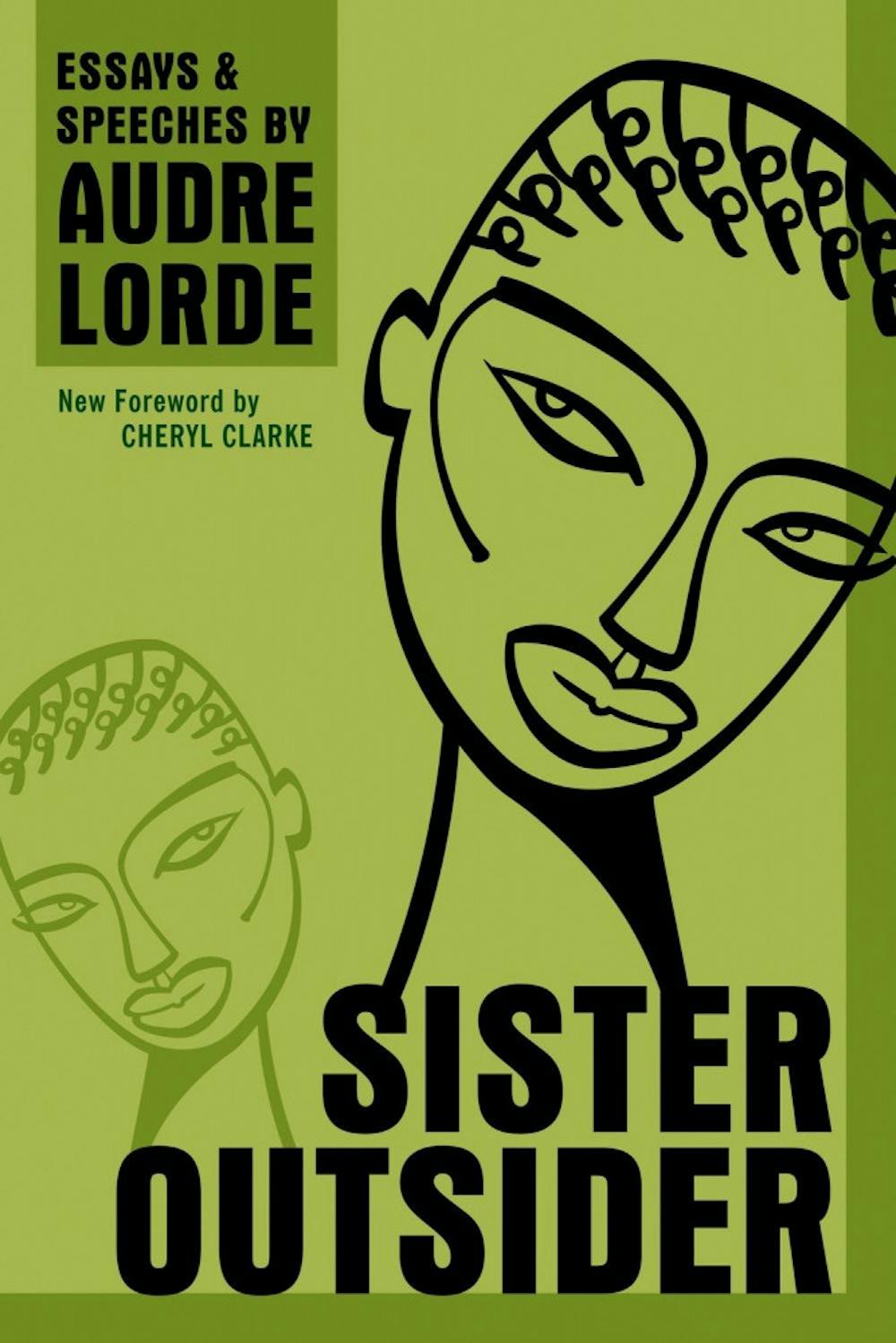It is a shame, is it not, that I was 32 before I came to place Audre Lorde within a literary and social context. Middlebury, of all places, gave her to me. Not my undergraduate institution. Not my graduate school experience(s). Not my travels abroad. Rather, my job, as a librarian, on this campus. In college, I took a class called “Hurston, Hughes and Wright,” which studied 20th century literature by black writers.
But it wasn’t ’til I came here, to rural Vermont, that this black, lesbian, feminist thinker, Audre Lorde, was introduced to me.
Professor Catharine Wright was engaging the author’s memoir, Zami, in her class, “Outlaw Women,” and I wanted to know more about the content students were reading, so I checked the work out. And Audre Lorde’s name resurfaced again and again on this campus.
So I began to wonder, “Was there a secret club I didn’t belong to where people learned who this woman was and were made better for it?”
Then Marcos Rohena-Madrazo, a man I admire, spoke to me about how fabulous Lorde’s Sister Outsider was. So when it became available as an audiobook at go/overdrive/, I checked it out.
Succinctly, Sister Outsider is a collection, as the book’s cover art suggests, of essays and speeches that, for me, largely questions, for one, who is allowed to participate in feminist discourse and, two, who is considered a producer of knowledge.
To the first of these questions, Lorde transparently posits that lesbian women have been excluded from feminist discourses that undeniably concern them.
Second, she lobbies for change that proactively seeks out the most marginalized women to participate publicly in feminist discourse. It’s more: she asks that regular and systematic efforts be made to recruit poor, “colored” and gay women to platforms and gatherings where their rights, livelihoods and well beings are discussed. Her works suggest that an exclusive and exclusionary feminism is no feminism at all.
With fear of blaspheming, I can’t say that what she said/wrote in her speeches and essays sounded new to me. But perhaps, in the year of my birth, 1984, she was one of the first who found a way to say it publicly and explicitly. Perhaps it is because she said and wrote it then that it sounds rote to me now some 30 plus years later. I do think it’s quite remarkable that I could spend so much time in college, 10 plus years, and not know any of her works intimately. (Who sets the curriculum and for who is it designed? What knowledge is considered worthy and worthwhile? Does education only happen within the classroom?)
That’s troubling. However, what I appreciate most from what I’ve seen of her oeuvre thus far is actually how very many diverse narratives Lorde represents in one person: she is black, a child of immigrants, a poet, vision-impaired, politically engaged, a lesbian and a mother. Her words, therefore, consider quite a variety of perspectives.
I’ll be honest: I wasn’t expecting a chapter on her travels to Eastern Europe or an exegesis on Grenadian-U.S. relations. But I got both plus much more. I’d recommend this work to anyone who is beginning to understand and identify their interlocking identities and feels puzzled and/or “shook.”
For more work like this, I recommend Kimberlé Crenshaw’s work in Critical Race Theory: The Key Writings that Formed the Movement or Crenshaw’s work in Feminist Theory, edited by Wendy K. Kolmar, which I have yet to read.
Learn more about the author at go/katrina.
Literatures & Cultures Librarian Katrina Spencer is liaison to the Anderson Freeman Center, the Arabic Department, the Comparative Literature Program, the Gender, Sexuality & Feminist Studies (GSFS) Program, the Language Schools, the Linguistics Program and the Department of Luso-Hispanic Studies.
The Librarian Is In

Comments



